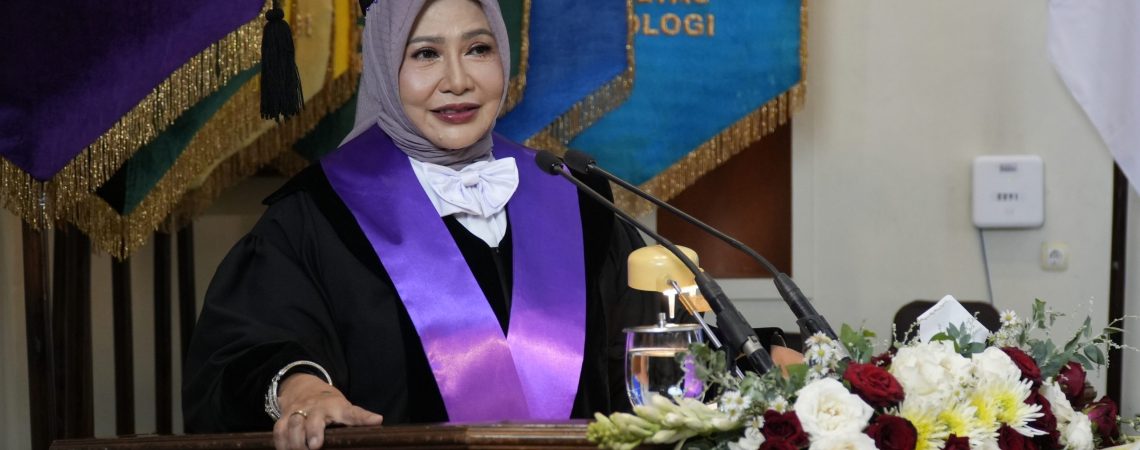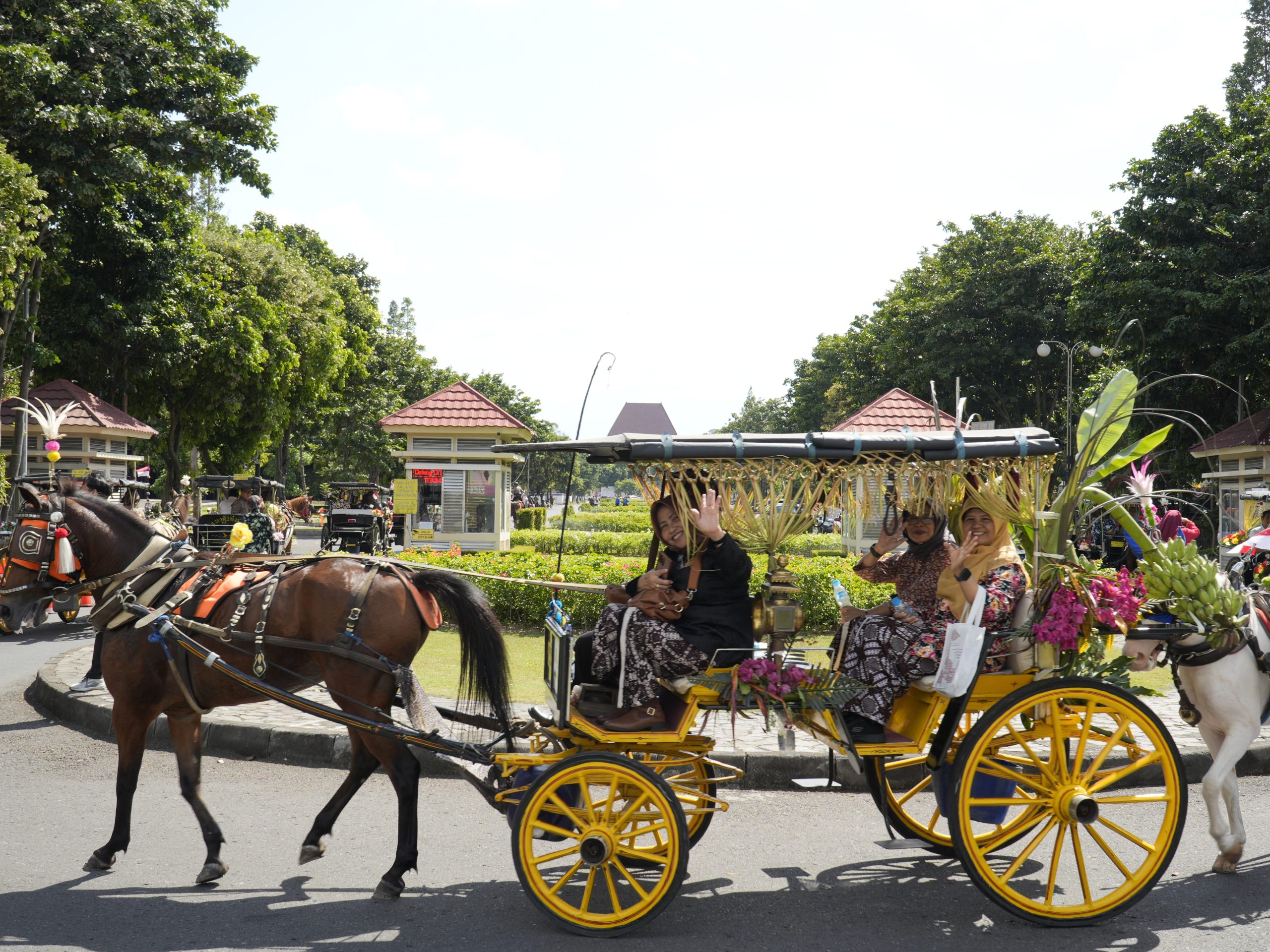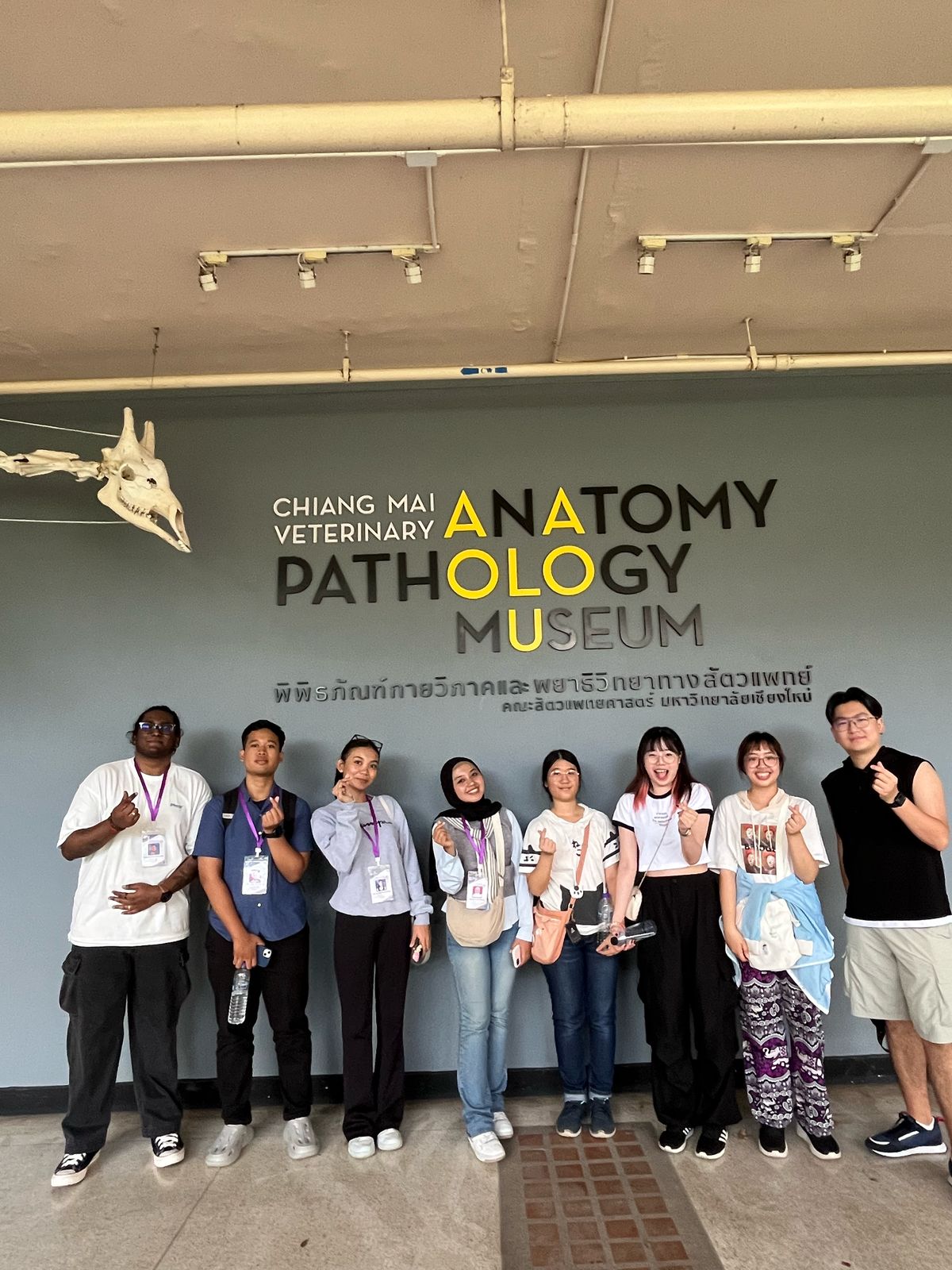Faculty of Veterinary Medicine, Universitas Gadjah Mada (FVM – UGM) has again inaugurated a professor, namely Prof. Dr. drh. Asmarani Kusumawati, M.P., in the field of Molecular Veterinary Reproductive Technology (20/5). This inauguration was held at the UGM Senate Hall and was attended by the university board, the faculty of veterinary medicine stakeholders, and her extended family. Prof. Asmarani is one of 529 active professors at UGM and 33 active professors at the Faculty of Veterinary Medicine.
During the inauguration ceremony, Prof. Asmarani Kusumawati delivered a speech entitled Molecular Veterinary Reproductive Technology for Strengthening Indonesian Food Security. In her speech, Prof. Asmarani Kusumawati said that beef cattle are one of the superior commodities that can be cultivated to meet domestic meat consumption needs. The increasing population growth and public welfare are in line with the increasing need for animal protein. Therefore, many efforts have been made including through the UPSUS SIWAB (Special Efforts for Mandatory Pregnant Breeding Cattle) program.
UPSUS SIWAB focuses on improving reproduction and artificial insemination which shows positive results in increasing the pregnancy rate of cows. However, the success rate of artificial insemination varies greatly between regions. In addition, the success rate of artificial insemination in cows is influenced by several factors such as semen storage methods, the quality of cows, and the skills and knowledge of farmers. The method of storing frozen semen in artificial insemination that is not appropriate causes a decrease in the quality of spermatozoa.
Sperm cell examination is generally carried out microscopically, but there is a more advanced examination through molecular DNA examination. The higher the level of sperm DNA damage, the higher the miscarriage rate in cows. She also said that with a deep understanding of the molecular aspects of spermatozoa such as proteomics-based fertility biomarkers, it will open up new opportunities for the selection of superior seeds and improving the genetic quality of local livestock in Indonesia.
This inauguration and tasyakuran event supports the values of the Sustainable Development Goals (SDGs), including SDG 2 Zero Hunger, SDG 4 Quality Education, SDG 12 Responsible Consumption and Production, and SDG 15 Life on Land.





